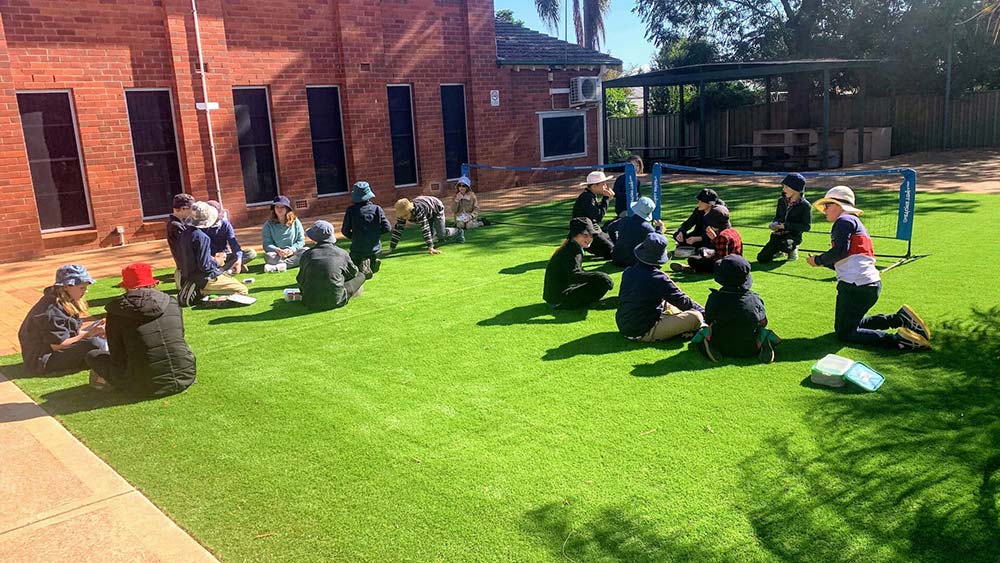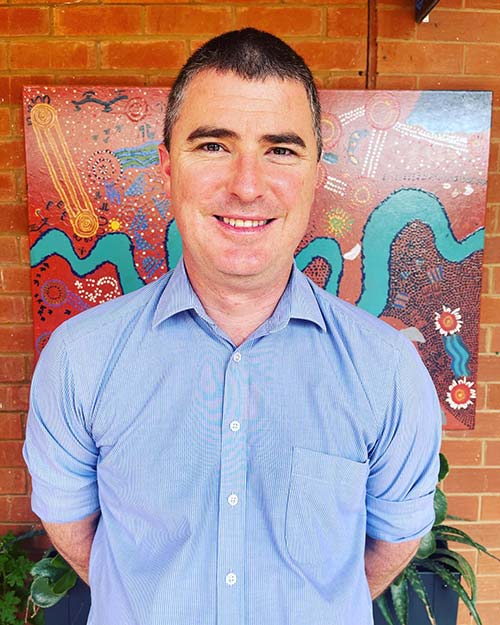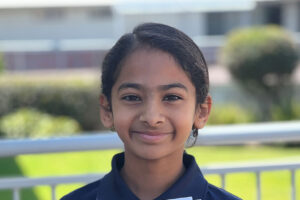How DEEP is helping the Central West Leadership Academy improve their students’ literacy and numeracy skills

Literacy and numeracy are hot topics in Australian education. A 2023 Government report found that students outside major cities are, on average, 1.75 years behind in literacy and 2 years behind in numeracy.1 And because these skills underpin everything in education (everything in life, for that matter), those students’ chances of academic success are diminished.

Dubbo in New South Wales is in an area that falls into the above category. But at the Central West Leadership Academy, the school’s Academic Coordinator Andrew Diessel is determined not just to keep his students on track for literacy and numeracy, but for them to excel – ideally into leaders.
To achieve this lofty aim, Andrew knows that he needs regular, reliable assessment data – the kind of data that gives him a rigorous understanding of his students’ progress. That’s why he signed up for Janison’s DEEP program: an initiative that provides free progression tests to schools in rural regions of NSW, with support from the University of Sydney.
“The DEEP program looked like a good opportunity to gain student data across the whole cohort. The data is consistent and helps us compare with what we’re already seeing.”
Consistency is key with testing. It allows Andrew to have enough student data to make accurate judgments on how they’re tracking – the very purpose of progression tests, which in the case of the DEEP program, are Reach assessments.
After completing two rounds of testing with Reach, Andrew has been pleased with the depth of test data that is available to him:
“Reach is looking good so far – a good amount of data across all year groups and the areas we test in. It lets us look at how cohorts are tracking, trends, and areas of weakness, as well as finer-grained individual student results to tell us what they know and don’t know.”
This wide range of analysis is vital to understand both the “big picture” of student growth as well as what specific individuals need to thrive. It allows informed decision making at every level, from school leaders to teachers. Andrew uses the data from Reach to analyse performance across the full range of students, which he makes available to the relevant departments and teachers:
“I’ve done high-level analysis for year groups and highlighted students who we might need to look at, so that our faculties can go through the reports in a fine-grain way and figure out where specifically there are areas for improvement.”
With this crucial information, and when combined with assessment data from NAPLAN, Andrew and other staff members at The Academy can make informed decisions about where to improve both literacy and numeracy in their school.
As for other schools, NAPLAN is an important source of information for The Academy, but it’s only available every two years. Students’ skills and knowledge can stagnate (or shrink) a lot within a two-year period, and with every passing day, interventions become less effective. Reach and the DEEP program are helping Andrew to mitigate this problem by providing literacy and numeracy data for every single student, every single year:
“NAPLAN provides finer detail every 2 years, but having Reach every year is really beneficial, particularly when we have a good chunk of kids who have never done NAPLAN before. Or they might have missed a year of NAPLAN so there’s information missing that we can’t track.”
With consistent year-on-year data coming from Reach, it’s much less likely that the school’s students will fall through the cracks. They can be discovered early enough to intervene and provide the timely one-on-one support needed to get them back on track. NAPLAN has immense value, but it doesn’t provide this important regularity. Steady, reliable assessment data means that setbacks can be identified – whether for individuals, classes, or entire cohorts – adjustments can be made to teaching strategies, and then those changes can be validated the very next year, which is exactly what The Academy has been doing for reading:
“While trying to improve student reading results across the school, the Reach data shows us how students went as a baseline. Teachers implement strategies to improve students’ results, and then we can come back after the next round of testing to see whether they worked.”
At The Academy, some students are involved in this improvement process in a different way: through goal-setting. Goals tend to more valuable when they’re both realistic and aspirational, and an effective way to achieve this balance is with strong assessment data that tells teachers where students are at with their learning. With this information, teachers can help their students create worthy goals that can serve as guiding lights throughout the year:
“One of our teachers used last year’s Reach results to inform goal-planning for the kids, including literacy and numeracy goals. The data was used to heavily inform that process.”
Clearly, Andrew and the Central West Leadership Academy are using their Reach data to great effect. It’s wonderful to see the DEEP program starting to have a positive impact on the school, particularly helping to support students’ vital literacy and numeracy skills. A huge thanks to Andrew and The Academy for participating in the program!
If you’d like to learn more about the DEEP program and whether your NSW school qualifies, you can do so here. Similarly, if you’re interested in Reach assessments for your school, please click here.
References
- 2022, Review of the National School Reform Agreement, Australian Government Productivity Commission
 Andrew Diessel
Andrew Diessel


